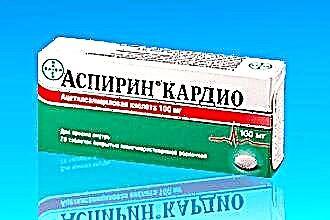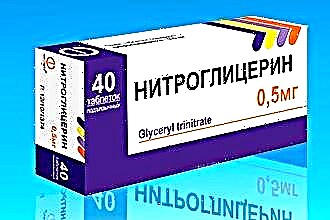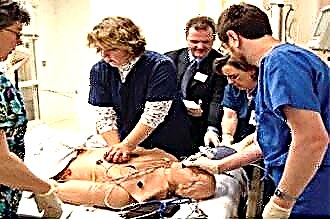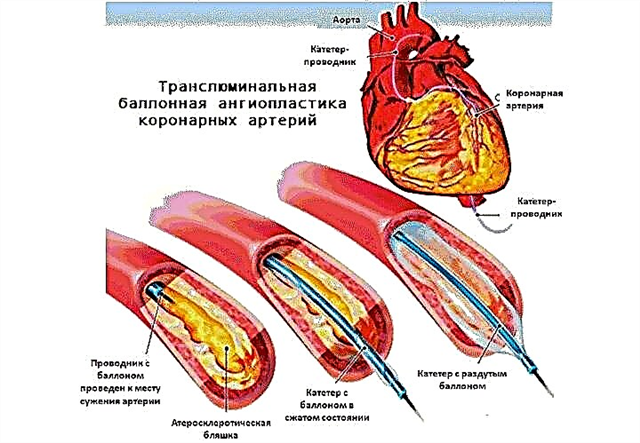Patients take pills for pain in the heart to relieve attacks and to continue their daily activities without feeling discomfort. The attending physician selects the drugs, who is guided by the results of the examination. It is forbidden to use such means without diagnostics, since there is a possibility of aggravating the situation. In addition, pain in the heart area is often a consequence of pathologies of other organs and systems (back, muscles, stomach), some have a psychosomatic factor. Therefore, the standard treatment regimen may not work.
Groups of medicines
For the treatment to be successful, they act on the entire chain of cause-and-effect relationships that provoke heart pain. There is no single drug that solves this problem. Everyone needs an individual combination of several means, which the doctor selects taking into account the results of all tests. The modern pharmaceutical market is releasing new drugs that combine several properties as much as possible so that a person does not have to drink pills in handfuls, but they are often not enough. According to the standards of treatment, remedies for pain in the heart are selected from the following groups:
| № | Group of drugs | Action taken | When appoint |
|---|---|---|---|
| 1. | Reflex medicines. | Reduces pain. | Treatment of vegetative-vascular dystonia and neuralgia of a different nature. |
| 2. | Peripheral vasodilators. | They act on the smooth muscle tissue of the vessels, expanding them. This reduces pain. Valid for the next two to three minutes. | Prevention of heart attack (myocardial infarction) and angina pectoris (chest pain). Treatment of ischemia of the heart and heart failure. |
| 3. | Antiplatelet agents. | Prevents the development of blood clots and atherosclerosis, improving the rheological properties (fluidity) of the blood. | Prevention of thrombosis, atherosclerosis, heart attack and heart failure. |
| 4. | Calcium channel blockers. | Prevents the flow of calcium through calcium channels into the cells of the heart (cardiomyocytes). The effect rendered dilates blood vessels, stabilizes the pulse and pressure. | Treatment of cardiac ischemia, hypertension and tachycardia. |
| 5. | Beta-blockers. | They prevent adrenaline from entering the heart by blocking beta-adrenergic receptors. Thanks to this, the pulse is normalized, the pressure stabilizes and the myocardial oxygen demand decreases. | Treatment of hypertension, arrhythmias, coronary heart disease. Prevention of myocardial infarction. |
| 6. | Fibrates and statins. | Reduces blood cholesterol levels and increases the amount of correct fats. | Concomitant medications used as an adjunct to treatment regimens for high cholesterol levels. |
| 7. | Microelements. | Saturate the heart muscle with useful substances. | Prevention of ischemia of the heart. |
List of drugs
If the heart hurts, a person needs to know the names of the drugs in order to alleviate the condition before visiting a doctor or the arrival of an ambulance. The best option is to have these medicines in your home medicine cabinet:
- "Validol" refers to reflex medication. Its main substance is menthol solution. The medicine does not work directly on the pain in the heart, but it calms the nervous system and dilates the blood vessels. It goes well with "Nitroglycerin". Due to the reception of the latter, the patient often has side effects. "Validol" stops them and relieves anxiety, which torments a person with pain in the heart;
- "Nitroglycerin" - nitrate, which is a group of peripheral vasodilators. Created on the basis of the substance of the same name. Apply a medicine to relieve an attack of angina pectoris. Acts by dilating blood vessels and improving blood circulation. Take "Nitroglycerin" sublingually (under the tongue). Thanks to this, the effect is felt in the next two to three minutes. If the action is weak, then repeated use is allowed after 5-10 minutes. The maximum dosage at a time should not exceed three tablets. If there is no result, you will need to call an ambulance, since there is a chance of developing a heart attack;
 "Aspirin" is created on the basis of acetylsalicylic acid. Reduces pain, removes fever, reduces inflammation, improves blood flow and prevents platelets from sticking to the artery wall. Due to the effect, the drug is actively used as a prophylactic agent for many heart diseases. "Aspirin" will not be able to stop angina pectoris, but with prolonged use, the chance of developing an attack will decrease;
"Aspirin" is created on the basis of acetylsalicylic acid. Reduces pain, removes fever, reduces inflammation, improves blood flow and prevents platelets from sticking to the artery wall. Due to the effect, the drug is actively used as a prophylactic agent for many heart diseases. "Aspirin" will not be able to stop angina pectoris, but with prolonged use, the chance of developing an attack will decrease;- "Amlodipine" is a group of calcium channel blockers. Its main active ingredient is amlodipineabesylate. By preventing the ingress of calcium ions into cardiomyocytes, the drug dilates blood vessels and stabilizes the heart rhythm. Relief comes after just one dose of the medicine;
- Anaprilin is a beta-blocker based on propranolol hydrochloride. An improvement in the condition occurs after just one dose of the drug. Stable stabilization of pressure and heart rate - in the second or third week of treatment;
- "Gemfibrozil" refers to fibrates and is popular because of its low toxicity. The drug is based on the active substance of the same name. Thanks to this drug, fatty acids are removed from the body, triglyceride production is reduced and cholesterol is removed. Prescribed with poor diet efficiency and poor blood biochemistry indicators;
- Rosuvastatin is a statin used to lower bad cholesterol levels. Its main active ingredient is rosuvastatin. The drug is popular in people with hypercholesterolemia and atherosclerosis;
- "Ascorutin" is a vitamin complex based on ascorbic acid and rutin. In the treatment of diseases of the cardiovascular system, the drug is used to strengthen blood vessels and relieve inflammation from them. A long course of admission allows you to achieve the normalization of metabolism and improve the protective properties of the body;
- "Asparkam" is used to normalize electrolyte balance and restore the usual rhythm of the heart. The main active ingredients of the drug are magnesium and potassium.
First aid measures
If the condition has deteriorated sharply, then it is necessary to urgently call an ambulance or ask the nearby people about it. Before her arrival, they take the following drugs:
- "Aspirin";

- "Nitroglycerine";
- Validol.
"Aspirin" is drunk in the first place, because it thins the blood and promotes the rapid absorption of other drugs. "Nitroglycerin" will dilate blood vessels and reduce the feeling of discomfort, and "Validol" will remove anxiety. After the ambulance arrives, tell the doctors which heart pain pills have been used since the onset of the attack.
A course of treatment
During the active phase of pain in the region of the heart, the patient must take off the squeezing clothes and relax. Such actions will alleviate the condition, allow you to understand the nature of the pain and figure out what to do next:
- stitching and aching sensations in the region of the heart, which are accompanied by a rapid pulse, an attack of suffocation, fever and headache, are stopped by Validol. They put it under the tongue. Relief occurs in 10-15 minutes. If this drug is not available, use alcoholic tinctures on lemon balm, hawthorn, peppermint and other herbs with a sedative effect. Usually pains of this nature are manifested due to stress, vascular dystonia and overwork. They are fickle and often change location and intensity;
- sharp, dull and squeezing pain in the chest speaks of angina pectoris.If discomfort manifests itself when walking, overwork and stress, then the problem relates to cardiac ischemia. First, take Validol or an alcoholic tincture based on sedative herbs. When there is no effect, put "Nitroglycerin" under the tongue. The procedure can be repeated after 10 minutes. It was not possible to achieve the result - you will need to call an ambulance;
- painful sensations of an acute and sharp nature, aggravated by movement and having precise localization, indicate the development of back diseases. They alleviate the condition with the help of non-steroidal anti-inflammatory drugs (Nurofen, Ibuprofen), produced in tablet form and in the form of topical agents (ointment, gel, cream). For the best effect, it is recommended to apply them simultaneously.
Indications and contraindications
Indications for pills for pain in the heart:
- angina pectoris;
- heart failure;
- arrhythmias of various forms;
- myocardial ischemia;
- prevention of myocardial infarction, thrombosis and atherosclerosis;
- vegetative dystonia;
- neuralgia;
- high cholesterol;
- hypertonic disease.
What to take with a certain pathological process, the doctor will tell you after a detailed examination and diagnosis. It is forbidden to choose pills and dosage on your own, as it will harm your health.
The main contraindications for heart pills:
- it is forbidden to use nitrates with increased intracranial and low blood pressure, glaucoma and in a state of shock;
- cardiac glycosides are contraindicated in bradycardia, renal and pulmonary failure, ischemic heart disease;
- "Validol" should not be taken by hypotensive patients and in case of cardiogenic shock, which has arisen due to a previous heart attack.
People who are at risk of taking medications for heart pain with caution:
- children under 18 years of age;
- chronic processes in the stage of exacerbation;
- cardiovascular pathology;
- developing renal, hepatic, or pulmonary failure;
- the period of pregnancy and lactation (breastfeeding);
- allergic reactions.
Pills for pain in the heart relieve the patient's condition before a visit to the doctor or the arrival of an ambulance. Entrust the choice of drugs to a cardiologist, who will evaluate the results of the examination and advise on the best treatment regimen. Only alcoholic tinctures based on sedative herbs and first aid products are used independently.

 "Aspirin" is created on the basis of acetylsalicylic acid. Reduces pain, removes fever, reduces inflammation, improves blood flow and prevents platelets from sticking to the artery wall. Due to the effect, the drug is actively used as a prophylactic agent for many heart diseases. "Aspirin" will not be able to stop angina pectoris, but with prolonged use, the chance of developing an attack will decrease;
"Aspirin" is created on the basis of acetylsalicylic acid. Reduces pain, removes fever, reduces inflammation, improves blood flow and prevents platelets from sticking to the artery wall. Due to the effect, the drug is actively used as a prophylactic agent for many heart diseases. "Aspirin" will not be able to stop angina pectoris, but with prolonged use, the chance of developing an attack will decrease;


